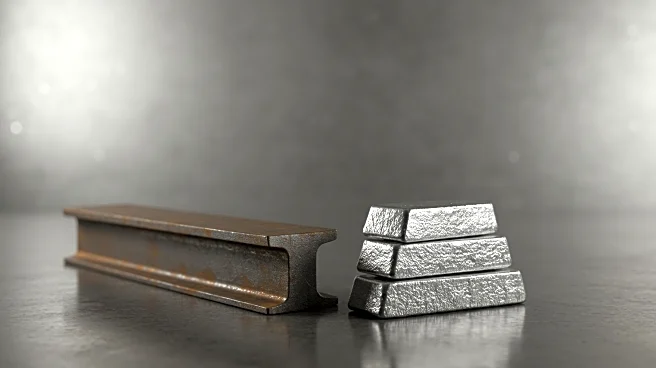What's Happening?
President Trump has implemented a 50% tariff on 407 categories of goods containing steel and aluminum, effective immediately. This move affects a wide range of products, including butter knives, baby strollers, spray deodorants, and fire extinguishers, which were previously excluded from such tariffs. The U.S. Customs and Border Protection and the Commerce Department announced the tariffs, leaving importers facing higher costs for goods already in transit. The tariffs aim to support the revitalization of the American steel and aluminum industries by closing loopholes for circumvention.
Why It's Important?
The tariffs are expected to ripple through the manufacturing supply chain, increasing production costs in sectors such as construction, automotive, and electronics. Businesses may struggle to absorb the 50% tariff, potentially leading to higher consumer prices. The move underscores the administration's focus on bolstering domestic industries but poses challenges for importers and manufacturers reliant on foreign materials. The broader economic impact could include increased costs for consumers and potential disruptions in supply chains.
What's Next?
Importers may need to reassess their supply chains and pricing strategies in response to the tariffs. The administration's focus on domestic industry support may lead to further trade measures, affecting international trade relations. Businesses will likely explore ways to mitigate the impact, such as sourcing materials domestically or negotiating new supplier agreements.











